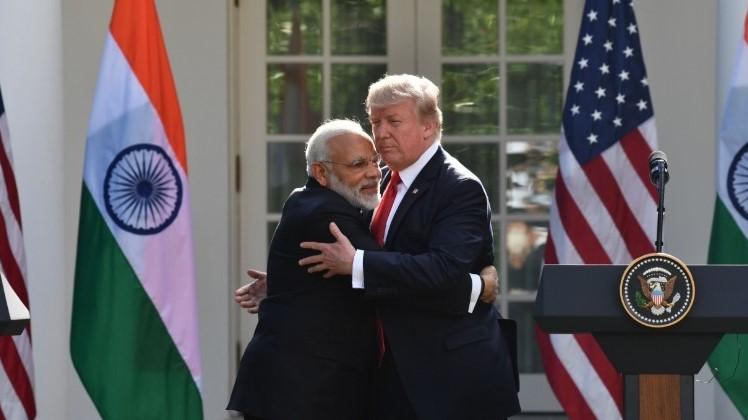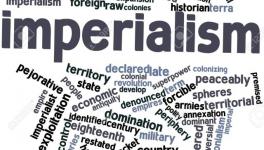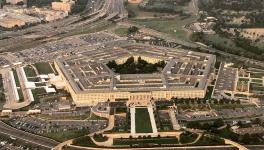Foreign Policy: When Appearances can be Deceptive

One way of looking at the state of India’s foreign policy is not to get carried away by meetings between the Indian Prime Minister and Heads of State or Government of big powers. Precisely because it is not just who the Indian PM meets, but also whether it is face-to-face and the duration of the meeting, which matters more. Sometimes being accommodated in scheduled bilateral talks as the third party, which then turns into a trilateral talk, is passed off as a great advance in relationship. But, at other times, this can actually be a reflection of diminished clout. Indeed, this caution is necessary where relations with big powers are concerned. For instance, the United States is adept at passing off something as inane as a name change (Asia Pacific to Indo Pacific) as a mark of India’s growing clout and US’s recognition of that.
Several Indian officials, security and diplomatic, are known to get carried away by flattery. So, to be compared favourably with China by foreign powers, pleases Indian rulers no end, never mind that China outpaces India militarily, economically, technologically as well as in relative terms, and is politically stable. To put it mildly, India’s ruling circles can tom-tom the great strides taken geo-strategically under the “nationalist” Bharatiya Janata Party (BJP)-led government, but it is when one looks closely that one realises that, belatedly no doubt, Indian diplomacy is trying to repair damaged ties and the confusion this has caused.
For years, India has claimed for itself a role in Afghanistan and the US has been all praise for India’s economic diplomacy and its $2 billion aid to the war-torn country. This apparent bonhomie lasted as long as India was assured that the US would remain committed to the survival of the Kabul government and maintain military presence for years, if not decades to come. It’s worth noting that the BJP-led government in 2001 offered the US use of Indian air bases and was also inclined to deploy military contingent to Afghanistan. Fortunately for India, its offer was rejected when Pakistan came on board for the attack on Taliban-led Kabul government. It was then believed that US would not resile from its anti-Taliban stance. But wars of aggression often turn upside down. The adversary bounces again on the battleground, forcing aggressors to acknowledge the ground reality. In past 17 years, it was tom-tommed that Taliban has been defeated and marginalised, only to realise that they are back in reckoning. So much so that the US is now suing for peace and is directly engaged in negotiating with Taliban in Qatar, even as Russia-backed parleys on Afghanistan saw its neighbours, including India, and even the US participating.
The significance of this rises when it is realised that whereas the US special envoy to Afghanistan, Zalmaty Khalilzad, visited India’s neighbourhood for holding talks on Afghanistan, he and his team scrupulously avoided India. Not once, but twice in a row. So, both in November last and now from December 2-20, the US special envoy is leading a delegation to Pakistan, Russia, Iran, China, Uzbekistan, Turkmenistan, Belgium, the UAE and Qatar. But not India. Which means that for all the accolades showered by the US on India for its economic aid to Afghanistan, when push comes to shove, the US does not regard India as playing any significant role there.
Indeed, so desperate is the US to quit Afghanistan now, that for all its abuse of Pakistan under the Donald Trump administration, it is Pakistan’s help they have sought to prevail on Taliban to agree to a deal. On the other side, but for Russia, and possibly China, India would have found itself left high and dry over Afghanistan. And now it is Pakistan’s foreign minister who has opined that since India “is present in Afghanistan, its cooperation in this regard (for peace) will be required”. Until now Pakistan kept arguing against any Indian role in Afghanistan, accusing it of being a “spoiler” and using Afghanistan to carry out subversive activities inside Pakistan. This is a remarkable shift.
What ought to be apparent to Indian rulers is that the US and its client states woo India as a counter-weight against China. In rupee and paisa, it means to ensure the Indian Navy acts as a “net security provider”, which is a way of saying that India picks the tab for providing security back-up for the US and its allies in West Pacific. While simultaneously, the US discounts India playing any role in the Arabian Sea and Western Indian Ocean and has scrupulously bypassed India where US talks with Taliban are concerned.
The point is that when Indian “experts” advocate that the US should be encouraged to remain present in the Indian Ocean as a counter-weight to China’s growing presence here, it is a plea which is based on a myopic strategic understanding. The US, as a unilateralist power and the world’s greatest military aggressor, has an unbroken record of interference in the domestic affairs of a country and subversion of democracy. It’s an imperial power, with a record of breaking and violating international rules and regulations at its whim and desires and is guilty of untold crimes against the people of Asia. It cannot be a trusted friend. Because it does not treat any country as its equal, barring China now (or the erstwhile Soviet Union in the past).
Take another issue. The opening of the Kartarpur Sahib corridor after 71 years is a quite a spectacular development. For years, Indian authorities have claimed that it is Pakistan’s military that plays the spoilsport each time the civilian government in Islamabad decides to make a friendly move towards India. With the victory of Imran Khan’s party, which almost everyone regards as having been propped up by the military, the opening up of the corridor ought to have been welcomed as signalling that Pakistan’s military was on board, for once. Not only did the Indian External Affairs Minister play this down but insisted that “terror and talks” cannot go together. This after the Indian Prime Minister, known for his characteristic hyperbole, described the opening of the corridor as big as the breaking of the Berlin Wall. Significantly, while the PM spoke of the Berlin Wall, his Foreign Minister brushed aside all talk of a thaw by linking terror with talks.
While the PM is known for “jumlas” and hyperbole, it is strange that on the very anniversary of 26/11 attacks in Mumbai, the government announced the acceptance of Pakistan’s offer for the Kartarpur Sahib corridor. Obviously, the Foreign Ministry was not in the loop and its statement appeared more of a petulant response then a considered view. Now, all and sundry are whipping up fear that the corridor would be used by Pakistan to infiltrate “Khalistani terror”. It would appear from the paranoia exhibited by the Indian rulers that any such opening of the border points would only help Pakistan to smuggle in its regressive ideas and people into India. And Pakistan’s change of stance on India’s role in a solution to Afghanistan is being read as due to “international pressure”. In other words, India remains a victim of its own fears, incapable of appreciating the straws in the wind that signal a shift.
One would have thought that such a corridor or opening of a border points through which people and goods move back and forth, could be put to the same use by the Indian side, as they accuse Pakistan of trying. Surely, for all our claim to be a democracy, where we take pride in the battle of ideas, India appears to be a weak and fragile polity, scared of ideas. Thus, the fears expressed by some Indians reveal more about how a country of 1.3 billion people, five times the size of Pakistan and a seven times larger economy, actually suffers from a “small country paranoia”. It is interesting to note that Indian rulers and their cronies fear the power of ideas flowing in from Pakistan and exhibit lack of confidence in Indians and the country’s institutional capacity to meet these challenges. Ideas, in any case, travel in all directions. The Rashtriya Swayamsevak Sangh-Lashkar discourse, each demonising the other, is not the only perspective prevalent in either India or Pakistan.
The question that fanatics ought to answer is, why would a ‘pracharak’ PM of India accept the opening up of a corridor if the threat posed to national security is so grave? That too on the very day the country was commemorating the infamous Mumbai attack by Lashkar-i-Toiba. Like most things in India today, where all decisions are taken by the Prime Minister’s Office, so was this decision taken to accept Pakistan’s offer. However, what we tend to ignore is that India, after a hiatus of four years and more, rediscovered the virtue of good ties with Russia, which paved the way for Moscow to invite India to parleys on Afghanistan recently. Similarly, the easing of tensions with China, which carries the greatest clout today in Pakistan, has also quite likely paid dividend in the shape of the opening the Kartarpur Sahib corridor. For all the years the US was the kingpin of Pakistan’s polity, it could not bring Pakistan to ease tensions with India.
More importantly, nearly a decade ago, former PM Manmohan Singh had ruled out, on the floor of Indian Parliament, war as an option with Pakistan. He went on to say then that in both the countries, a peace constituency exists and that this constituency should be encouraged and allowed to expand. He was, for once, hitting the nail on its head. For this, his own party (Congress) and rabble-rousers of BJP abused and maligned him. But his point remains valid even today. The fact is that opening of the Kartarpur Sahib corridor and now Pakistan’s changed stance regarding Indian role in the Afghanistan settlement can either be construed as something sinister or, if better sense prevails, it would be seen as something that augurs well for easing tension.
So, the Indian government cannot escape its share of blame in succumbing to rabble-rousers hijacking foreign policy vis-a-vis neighbouring countries. To persist and perpetuate for posterity, hostile and adversarial relations with a neighbour, our most intimate enemy at that, is futile, as the past 70 years have shown. The only thing India has desisted from trying out is the path of dialogue, placing people-to-people relations at its centre. When an opening is provided, then it is for the bigger country, India, to ensure that this opportunity is seized.
Get the latest reports & analysis with people's perspective on Protests, movements & deep analytical videos, discussions of the current affairs in your Telegram app. Subscribe to NewsClick's Telegram channel & get Real-Time updates on stories, as they get published on our website.
























